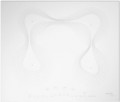Burners power
Nominal burners power. It refers to the power consumption of the heater. This parameter allows you to estimate how much electricity the burners will spend when operating at maximum heating intensity. At the same time, the heat transfer power of different burners can be different, and the actual heating efficiency will also greatly depend on the specs of the dishes. As a result, it hardly makes sense to evaluate the working capabilities of the hob by the power of the burners. It is quite possible to proceed from the fact that the burner will be enough for a pot of the same diameter.
Burner diameter
The heating power directly depends on the diameter of the burners. And, at the same time, the performance of the device and the speed of cooking. The larger the burner, the more heat dissipation it has. Also, the diameter of the burner allows you to determine what sizes of dishes are suitable for use on the hob. Indeed, for induction models, this value is critical for high-quality heating. Burners can have the following diameter:
- small — about 145 mm, power within 1200 W;
- medium — about 180 mm, power within 1700 W;
- large — about 220 mm and more, power within 2000 watts.
Some hobs use double ring burners that allow you to adjust the diameter of the heating zone. If the diameter of the burner is 180, 200, 220 mm, then it means that the heating zone on a particular burner can be narrowed or expanded, depending on the size of the dishes used.
Number of power levels
The number of temperature settings of the burner. The more power levels, the more accurately you can set the required temperature for cooking a particular dish. However, in most cases, nine levels are enough for home use. But, if you are a gourmet and often cook unusual dishes that require strict adherence to the recipe, then you simply need more temperature settings.
Automatic programmes
—
Boil detection. A system based on a sensor that monitors the state of the product being cooked (usually by the temperature of the dishes): before the water boils, the burner operates at maximum, and after boiling, the sensor reduces the intensity of work to a certain value. The point of this adjustment is that much less heat is needed to maintain the boil than to heat it up to the boiling point; moreover, if you do not reduce the heat, the liquid can spill. Accordingly, automatic boiling allows not only to save energy but also to avoid such troubles. This function is found in electric models (see Product type).
—
Keep warm function. The keep warm function keeps food warm until served. It will come in handy in cases where dinner is already cooked and the guests have not yet arrived. The maximum time for keeping heat usually does not exceed 1-2 hours.
—
Melting. Special mode for low-temperature thawing of small portions of frozen food, melting butter or chocolate. The function allows you to carefully melt the necessary ingredients into a mass of a homogeneous structure without fear that they will burn or overheat.
—
Auto fry function. The pre-set automatic frying mode, which ensures that the temperature of the bottom of the dishes is maintained at the optimum temperature, preventing it from cooling down or over
...heating. An auto fry programme usually provides several cooking modes for different tasks.
— Additional. Several specific auto-programmes used in individual hobs and not covered by the list above.
Input power
The input power of the hob is the maximum electric power consumed during its operation. This parameter is indicated only for models that are equipped with at least one electric hotplate. It is electric burners that are the highest consumption in terms of energy consumption. Additional functions such as auto-ignition require little energy, and a regular outlet is enough for them.
First of all, the requirements for the power mains depend on this parameter: it must be able to provide such power without overloads. It is worth noting that for household sockets the power limit is about 3 – 3.5 kW, with more power, you need to connect the hob to 230 V mains according to special rules. An alternative is to use a three-phase 400 V mains: most modern hobs with electric burners allow connection to both 230 V and 400 V mains.
Power limit
A safety feature that prevents possible problems with old wiring that is not designed for the power consumption of the hob.
The power limit protects the electrical network from a short circuit or burnout of the wiring, and the function will also be useful when working simultaneously with the other household appliances.
Dimensions (WxD)
General dimensions of the device in width and depth. Depth, in this case, refers to the distance from the leading edge to the trailing edge (when viewed from the user's side). Note that the external dimensions of the hobs are often larger than the dimensions for embedding (see below).

